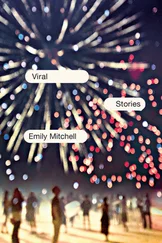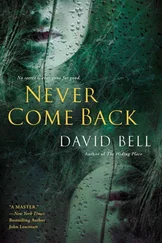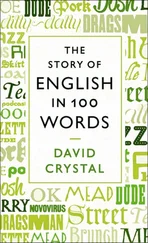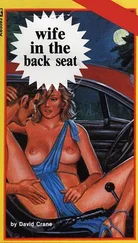So I settled on chocolate as a respectable sort of sweet to aspire to owning. And I liked chocolate, just nowhere near as much as toast. At Christmas and Easter, therefore, I would be given quite a lot of chocolate. I would be aware that this was a good thing; that, in the economy of children, I was briefly rich. This was a state of affairs to be cherished, I reasoned. So I wouldn’t eat it. I’d hoard it. This took very little self-control as the pleasure I took from eating chocolate was massively outweighed by the displeasure I endured from ceasing to own it.
What a natural miser, you might think. I hope not – and I don’t think so. In general, I like what money buys more than the money itself. But I don’t spend a lot on chocolate. Of course, my nest egg – or nest of chocolate eggs – was no good to me. When I returned to my stash weeks later, it had taken on the taste of the packaging and developed that horrible white layer. A poor reward for my prudence.
I have no idea whether these feelings of oddness and inadequacy are normal and, if so, whether I felt them to a greater or lesser than normal extent. Is it normal to feel you’re not normal but want to be normal? I think it probably is.
I certainly don’t think that those feelings drove me to comedy. Although it may explain some of the murders (see Book 2).
I’m always suspicious of that ‘comedy comes from pain’ reasoning. Trite magazine interviewers talk to comedians, tease a perfectly standard amount of doubt, fear and self-analysis out of them and infer therefrom that it’s this phenomenon of not-feeling-perpetually-fine that allowed them to come up with that amusing routine about towels.
Well, correlation is not causation, as they say on Radio 4’s statistics programme More or Less . Everyone’s unhappy sometimes, and not everyone is funny. The interviewers may as well infer that the comedy comes from the inhalation of oxygen. Which of course it partly does. We have no evidence for any joke ever having emanated from a non-oxygen-breathing organism. At a sub-atomic level, oxygen is absolutely packed with hilarions.
What distinguishes the comedian from the non-comedian, I always want to scream at the interviewers, is not that they are sometimes unhappy, solemnly self-analyse or breathe oxygen but that they reflect upon these and other things in an amusing way. So stop passing this shit off as insight, interviewers. You’ve not really spotted anything about the people you’re speaking to. You think you see unusual amounts of pain when it’s just performers politely glumming up so as not to rub your noses in the fact that their job is more fun than yours. So they mention that they sometimes feel lonely and hope the article plugs the DVD.
I suspect that my levels of infantile self-doubt were no more remarkable than my year of birth – which is 1974, by the way. And I certainly didn’t feel inadequate all, or even most, of the time. I often felt special and clever and like I’d probably grow up to be a billionaire toy manufacturer or captain of the first intergalactic ship with a usable living room. In those moods I didn’t want to be normal.
If I was a happy little four-, five- or six-year-old – and I think I probably was, for all my worries and doubts – it’s thanks to my parents. They always gave me the impression that they were delighted by my very existence – that I rarely did anything wrong and, if I actually did anything right, then that was a tremendous cherry on the amazing cake. I was made to be well-behaved in front of other people, but I certainly felt I could say anything to them – scream, rage, cry, worry, speculate as to the presence of wasps, ask to be addressed in the manner of an eighteenth-century king, pretend to be in a spaceship or on television, suddenly need the loo – and all would still be well.
There is really only one thing I remember about their general parental shtick which irritates me now, and that was their attitude to Oxford. They were really quite down on it. I suppose they’d only just moved there and didn’t particularly feel welcome or like they belonged there – in contrast, I think, to Salisbury with which they’d also had no previous connections but had immediately loved. My mother missed living by the sea – she still does – and my dad, who grew up in the north, has never had the accent but developed a little of the sixth sense for snootiness. And you don’t need a sixth sense for snootiness to detect it in Oxford. It’s undoubtedly a snooty place. But then it’s got a fair bit to be snooty about. (It’s also got a massive chip on its shoulder about Cambridge, which is understandable.)
I think my mum and dad imagined they’d move somewhere else before too long, so they discouraged me from getting attached to the place. You’re not really from here, you were born in Salisbury, your mum’s Welsh and your dad’s a bit Scottish, so you’re not even really English – you’re British and not really from the only place you can remember ever being in. That was the message I was given. And I can understand why.
But that’s not much use when you’re four, when you’re looking for the things that define you. You want a home town and you want to be able to bask in the illusion that it’s the best place in the world. You might even consider supporting the football team.
Such securities were denied me because, while they never said Oxford was a dump and would always concede that it was a beautiful place with a famous university, I was never allowed to forget the city’s failings – and indeed England’s. England, I was given the impression, was the snootiest part of Britain and consequently undeserving of my allegiance.
My parents still live in Oxford and I’d be very surprised if they ever leave. They have lots of friends in the area and they’ve grown very fond of it. My brother, Daniel, was born there and our parents were already coming round to the place by then. Consequently he did support the football team for a while and feels tremendous allegiance to the city, to the extent that he has, up till now, neglected to move away.
So I’ve always felt a bit rootless, but without any of the cachet of most rootless people. You know the sort: Danish father, Trinidadian mother, live in Thame (I’m thinking of a specific boy in my class). For people like that, the fact that they have no single place of allegiance is part of what defines them – it’s interesting and glamorous. Being definitely British but with your loyalties split between various unremarkable parts – Oxford, Swansea, Salisbury, the Scottish Borders – has no exotic upside to compensate for the absence of a one-word answer to the question: ‘Where are you from?’
The Danish-Trinidadian boy had real candles on his Christmas tree, which necessitated having a fire extinguisher on stand-by. And he was called Sigurd Yokumsen. I bet no one ever mistakes him for a fucking novelist.
Конец ознакомительного фрагмента.
Текст предоставлен ООО «ЛитРес».
Прочитайте эту книгу целиком, купив полную легальную версию на ЛитРес.
Безопасно оплатить книгу можно банковской картой Visa, MasterCard, Maestro, со счета мобильного телефона, с платежного терминала, в салоне МТС или Связной, через PayPal, WebMoney, Яндекс.Деньги, QIWI Кошелек, бонусными картами или другим удобным Вам способом.












